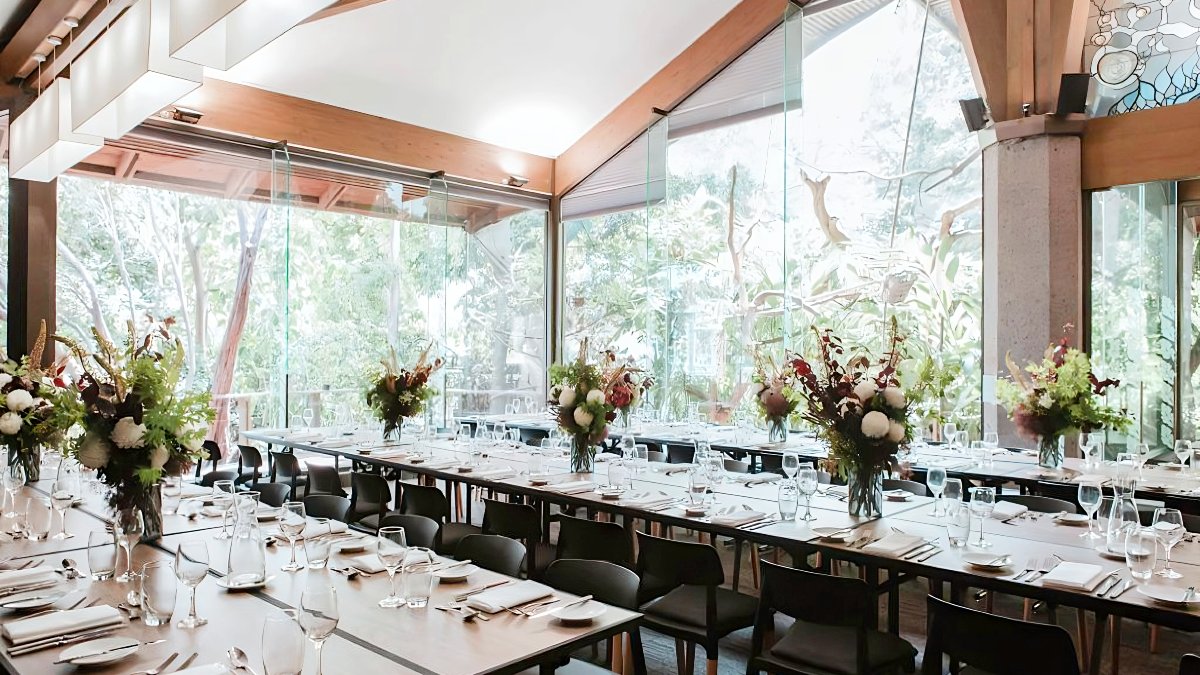
Written by: Cara Tirona
April 18, 2024
In today's world, being eco-conscious is not just a trend, but also a responsibility. Sustainable event planning is an excellent way to reduce environmental impact while still delivering memorable experiences. This guide will provide actionable tips for creating eco-friendly events, from selecting the right venue to managing waste effectively.
The Foundation of Sustainable Event Planning
When it comes to planning sustainable events, the key is to focus on the three pillars of sustainability: environmental, social, and economic. These aspects must be balanced to ensure that the event has a positive impact on the environment, society, and economy.
Choosing a Sustainable Venue
The venue is one of the most critical factors in event planning. Selecting a venue that prioritises sustainability through practices like energy efficiency, water conservation, and waste reduction is crucial. Look for venues with green certifications or those that utilise renewable energy sources.
When selecting a location for your event, consider the following:
- Location: Choose a venue that is easily accessible by public transportation to reduce carbon emissions from attendees' travel.
- Energy Efficiency: Look for venues that have green certifications or use renewable energy sources to reduce the event's overall energy consumption.
- Waste Management: Ensure that the venue has recycling and composting facilities to minimise waste generation during the event.
Embracing Digital Invitations
Swap out paper for digital invitations to cut down on waste. Not only are they more sustainable, but they also offer a quicker and more interactive way to manage your event communications. You can use online platforms to send invitations, collect RSVPs, and share important event updates with attendees.
Implementing Eco-Friendly Materials
From decorations to attendee badges, opt for materials that are recycled, biodegradable, or easily reusable to minimise your event's carbon footprint. This includes using sustainable alternatives like bamboo or paper straws, reusable cups and utensils, and eco-friendly packaging for food and beverages.
Planning Sustainable Transportation
Transportation to and from the event is often a significant contributor to carbon emissions. Encourage attendees to carpool or use public transportation by offering incentives such as discounted tickets or prizes. For events with international attendees, consider purchasing carbon offsets to neutralise the carbon emissions from air travel.

Innovations in Catering and Sourcing
Food is a significant contributor to waste at events. Opt for catering companies that prioritise sustainable practices like sourcing ingredients locally and using reusable or compostable packaging. Also, consider incorporating plant-based options into your menu to reduce the carbon footprint of your event.
Offering Plant-Based Catering Options
Incorporating plant-based and locally sourced food options reduces environmental impact and supports local businesses while catering to sustainable food choices. Work with your caterer to create a menu that caters to all dietary restrictions and preferences. You can also consider offering vegetarian or vegan options as the default for attendees.
Reducing Food Waste
Food waste is not only harmful to the environment but also contributes to global hunger. To minimise food waste at events, plan accurately by requesting RSVPs and tracking attendance closely. If there is leftover food, consider donating it to local food banks or shelters.
Local Sourcing for Event Supplies
Prioritise local vendors for your event needs to cut down on transportation emissions and support the local economy. This includes everything from event decorations and supplies to gift bags and promotional items. You can also look for environmentally friendly options, such as sourcing organic and fair-trade products.
Reducing Single-Use Plastics
Eliminate or significantly reduce the use of single-use plastics by opting for compostable cutlery and plates or encouraging attendees to bring their reusable items. You can also provide water stations instead of plastic bottled water, reducing both waste and costs.

Engaging Attendees in Sustainability
As event planners, we have a responsibility to educate and inspire attendees to adopt sustainable practices. Here are some ways you can engage attendees in sustainability during your event:
Green Exhibitor Guidelines
Provide exhibitors with guidelines on sustainable practices, such as using eco-friendly materials and avoiding single-use plastics. Encourage them to promote their green initiatives and educate attendees at their booths.
Interactive Sustainability Activities
Incorporate sustainability-themed activities into your event program, such as eco-friendly DIY workshops or interactive games that educate attendees on sustainable practices. You can also offer prizes for those who participate, such as reusable items or eco-friendly products.
Partnering with Local Environmental Organisations
Partner with local environmental organisations to raise awareness and support their initiatives. You can invite them to have booths at your event, host educational sessions, or even donate a portion of the event proceeds to their cause.
Towards Zero Waste and Carbon Neutrality
By implementing sustainable practices and engaging attendees in sustainability, we can work towards creating zero waste and carbon-neutral events. But we must also take responsibility for the remaining waste and carbon emissions from our events.
Carbon Offsetting
Consider purchasing carbon offsets to mitigate your event's overall footprint. This involves investing in projects that reduce or offset carbon emissions, such as renewable energy or reforestation initiatives.
Waste Reduction Strategies
Implement waste reduction strategies, such as using digital event materials and offering incentives for attendees to carpool or use public transportation. Also, providing shuttle services from major hubs helps reduce the carbon footprint associated with travel to and from your event. You can also consider partnering with waste management companies that specialise in diverting waste from landfills through recycling and composting.
Measuring Success and Reporting on Sustainability
To gauge the effectiveness of sustainable practices implemented at your event, it’s crucial to establish metrics and gather data both before and after the event.
Sustainability Reporting
Post-event, compile a sustainability report detailing the eco-friendly measures taken and their impact. This not only holds your event accountable but also sets a benchmark for future events. Share this report with attendees, sponsors, and vendors to showcase your commitment to sustainability.

Attendee Feedback
Collect feedback from attendees on their experience with the event's sustainable practices. This will not only help improve future events but also show that you value their opinions and are dedicated to creating a more sustainable event.
The Role of VenueNow in Sustainable Event Planning
Discover how VenueNow can simplify the search for sustainable venues and vendors, making it easier to organise events that align with your environmental values.
Conclusion
Sustainable event planning requires a commitment to reducing environmental impact through thoughtful decision-making and innovative solutions. By following the tips outlined in this guide and leveraging resources like VenueNow, event planners can lead the charge towards a greener future for the industry. Remember, every choice counts when it comes to sustainability.
Looking to plan a sustainable event? Start with VenueNow to find eco-friendly venues that share your commitment to the environment.
Looking for an event venue to hire?
VenueNow has you covered with over 2,000 venues across Australia ranging from large event spaces to small meeting rooms. Find your perfect venue for hire faster than anywhere else.
Follow us on social media to stay up to date with the latest news
Customers
Want to get in contact?
Call our support team on 1300 647 488 during business hours AEST.
Follow Us
© Copyright VenueNow 2026 | SPARE GROUP PTY LTD | ABN 22 607 830 302











